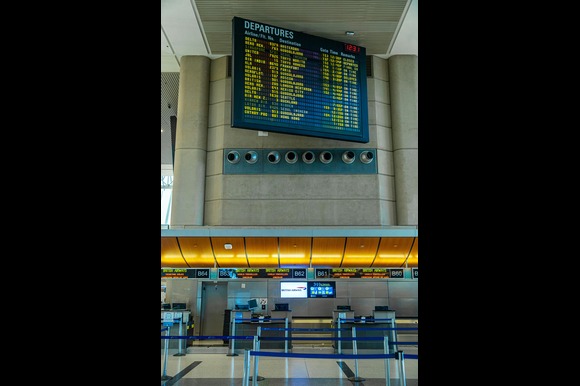Tens of thousands of travellers have had their holiday plans thrown into chaos as a French air traffic control strike led to widespread flight cancellations across France on Thursday and Friday, causing ripple effects throughout Europe.
Budget carrier Ryanair reported cancelling more than 170 flights due to the two-day strike, affecting over 30,000 passengers. The industrial action has disrupted not only flights departing from or arriving in France but also those crossing French airspace en route to destinations such as the UK, Ireland, Spain, and Greece.
The strike was organised by two French unions in protest over working conditions. The disruption has led to significant reductions in air traffic, with up to a quarter of flights cancelled at Paris’s main airports and half of all flights grounded at Nice airport.
French Transport Minister Philippe Tabarot harshly criticised both the unions’ demands and the timing of the strike, calling it “unacceptable” during a critical holiday period when millions are travelling.
Ryanair CEO Michael O’Leary condemned the strike, accusing air traffic controllers of “holding European families to ransom.” He called on European Commission President Ursula von der Leyen to intervene and implement urgent protections for overflights through French airspace, arguing that minimum service requirements should be enforced during strikes to protect passengers.
“It makes no sense and is abundantly unfair on EU passengers going on holidays,” O’Leary said, urging immediate EU action to prevent further disruption from domestic industrial disputes.
France’s civil aviation authority, the DGAC, responded by requesting airlines to reduce their scheduled flights at several major airports. The situation is expected to worsen on Friday, with 40% of flights cancelled from Paris airports including Charles de Gaulle, Orly, and Beauvais.
The UNSA-ICNA union, which called for the strike, cited a combination of staffing shortages, dissatisfaction with management practices, and strong opposition to a proposed new clock-in system for air traffic controllers. Negotiations earlier in the week between union representatives and the DGAC failed to break the deadlock.
Airlines for Europe (A4E), a major aviation industry group, described the industrial action as “intolerable” and warned of severe travel disruption at the peak of Europe’s holiday season.
Low-cost carrier EasyJet, also affected by the cancellations, voiced “deep disappointment” over the situation and urged a swift resolution to the dispute.
Ryanair noted that on top of the strike-related disruption, its operations have also been impacted by the recent Middle East conflict, which resulted in the cancellation of more than 800 flights in June. Nonetheless, the airline emphasised that it still managed to operate over 109,000 flights during the month, indicating that less than 1% of its total flights were affected.






